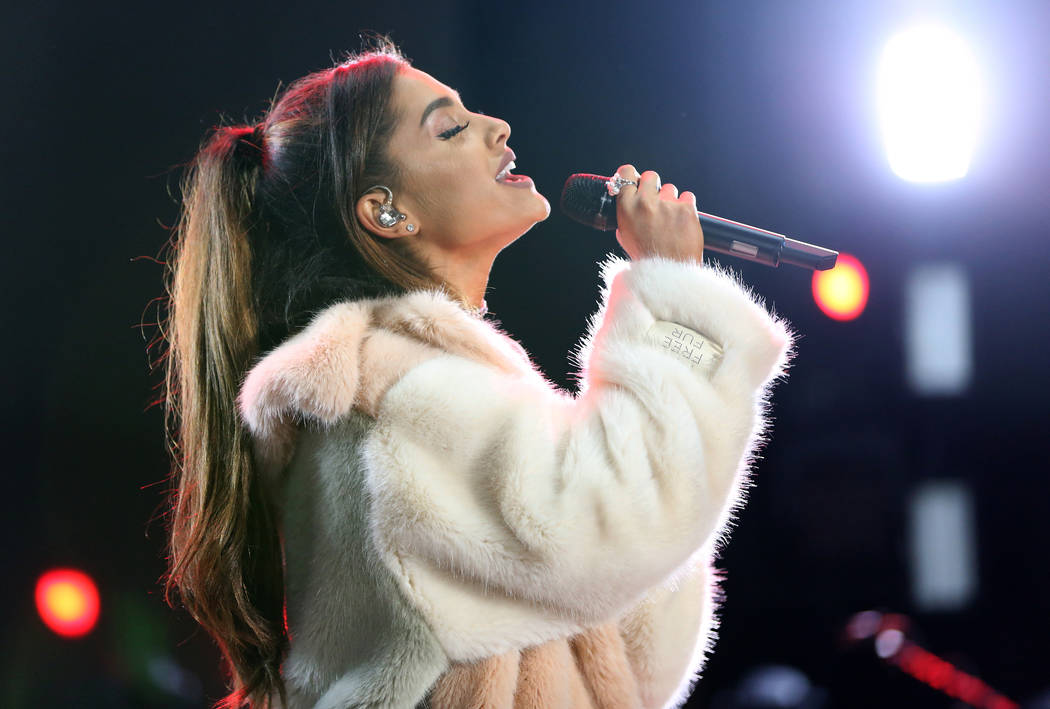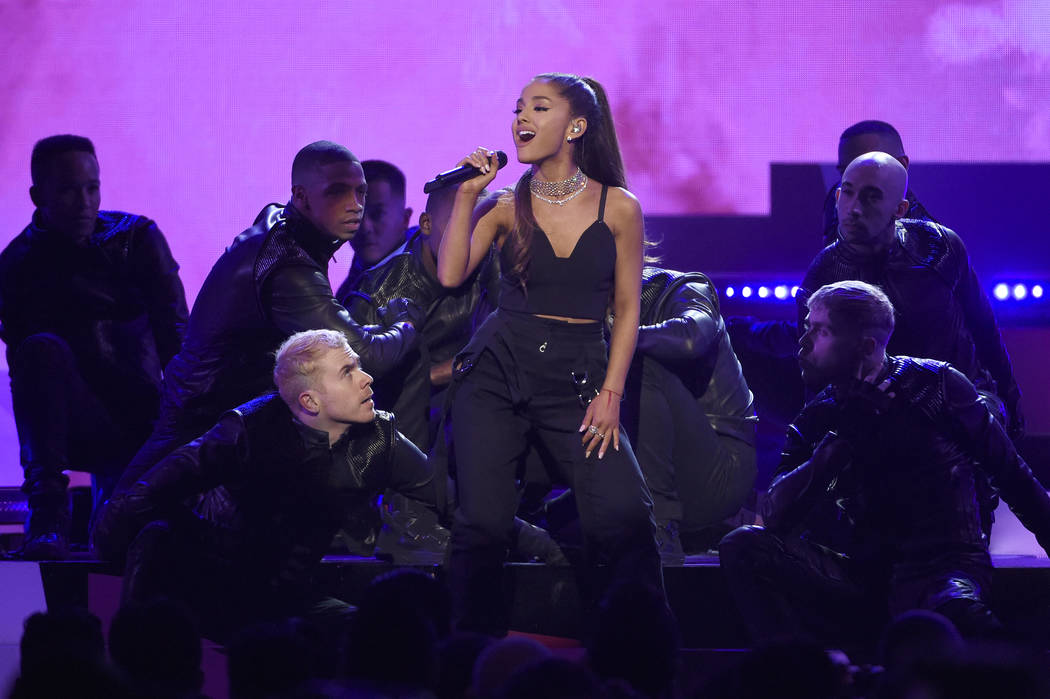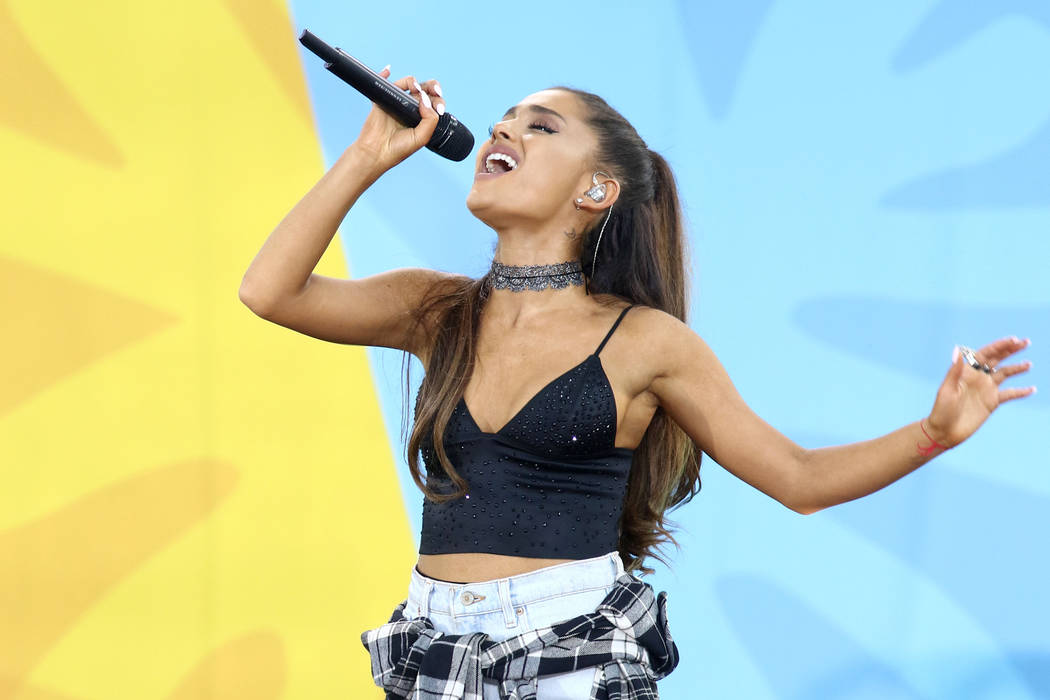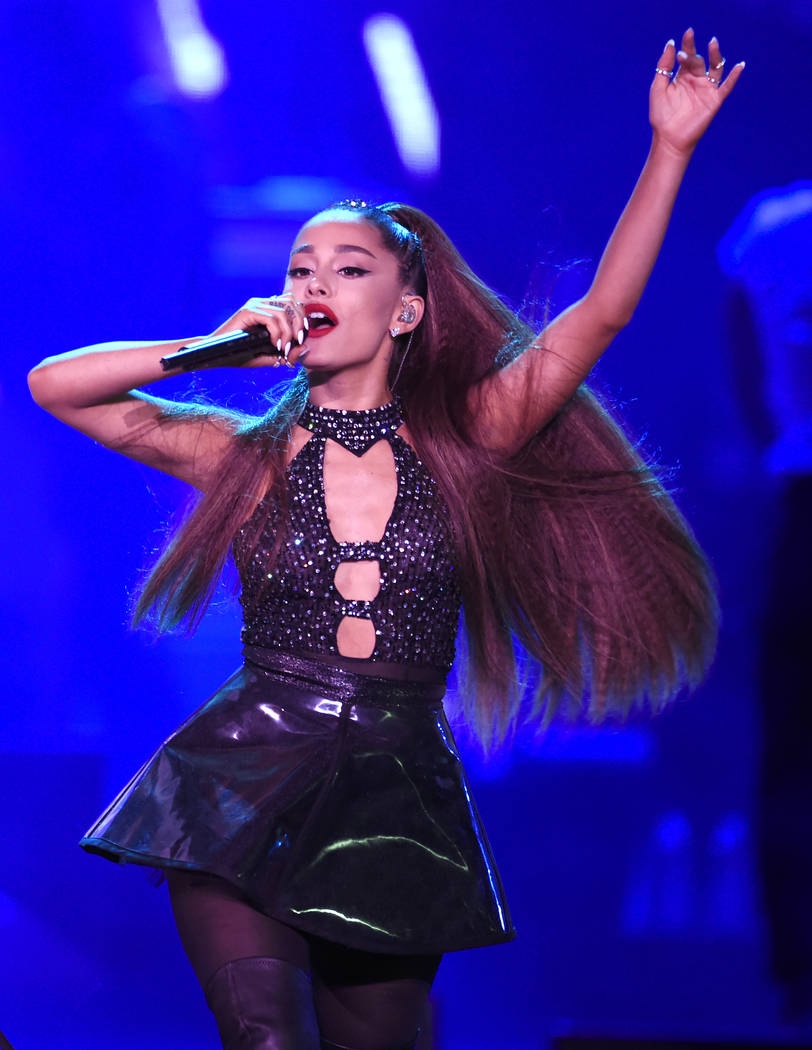3 keys to Ariana Grande’s staggering success
The pop Neil Armstrong signals one for the ladies.
“This is one small step for woman / One giant leap for womankind,” a disembodied voice professes at the outset of “NASA,” a breathy assertion of feminine independence found on “Thank U, Next,” the latest album from Ariana Grande.
At first blush, a line like that might register as hyperbolic.
But reflect on what Grande, 26, has achieved in recent years — and what she’s done with her increasingly outsize platform as one of the biggest contemporary pop stars — and those words might not seem an exaggeration.
The stats: In addition to being the most followed woman on Instagram, with an audience of more than 146 million, Grande is the most followed female musician on YouTube and Spotify.
Earlier this year, she became the first act since the Beatles to occupy the top three spots on the Billboard 100, and she has been ranked among Time magazine’s 100 most influential people in the world twice (2016 and 2019).
She’s sold millions of records, racked up billions of streams, won a Grammy and rocked perhaps the world’s most famous ponytail.
As such, Grande was recently named Billboard magazine’s most accomplished female artist to debut in the 2010s.
But how did she get here? What’s made Grande unique?
As she returns to Las Vegas this weekend, let’s examine the top three reasons why:
Those pipes
“Can you imagine opening your mouth and that comes out?”
Perhaps some context is in order here.
Said question was adoringly posed by of-the-moment pop star Billie Eilish on Twitter, where she recently marveled at Grande’s grande voice.
And oh, what a voice it is, a thing of windshield-shattering force, the vocal equivalent of boasting a lungful of nuclear warheads.
Grande has a four-octave range and is capable of singing in the whistle register — the latter of which can create the sensation of taking an ice pick to the cochlea if utilized incorrectly.
And for a while, Grande did struggle to control her impressive pipes.
Like Mariah Carey and Christina Aguilera before her, Grande is capable of scaling such incredible vocal heights that she tended to overindulge in her enviable upper register earlier in her career. Her vocal acrobatics occasionally distracted from and/or overwhelmed her songs, like a cannonball fired through papier mâché.
But Grande has grown adept at exploring the nuances of her voice, varying her cadence, balancing power with subtlety, singing in a supple lower register, often conveying more with less.
She can still wail — check out the tail end of “Imagine,” the opening cut on “Thank U, Next,” where she fires her voice to the sky wantonly, with gleeful abandon, like a kid shooting rubber bands at the sun.
The difference nowadays?
Grande fully possesses her voice instead of letting it possess her.
An impressive evolution
Sweet and kid-friendly with the plastic feel of something mass-produced, it was like the byproduct of a late-night tryst between a bale of cotton candy and a Nerf football.
Such was “Yours Truly,” Grande’s 2013 debut.
While impressively executed, the album felt like something created in a beaker down in the lab at Teen Pop World Headquarters, Grande painting inside well-established lines — even if said brushstrokes were done with obvious skill.
But, from album to album, Grande has steadily, impressively developed her artistic voice in unison with her actual voice, really beginning to come into her own on her third album, 2016’s “Dangerous Woman,” a confident, assured-sounding record that registered as a creative turning point.
And she’s done it with her fingerprints all over the final product, which is why her growth feels more organic than something hatched in a major-label marketing department. Grande has always had a hand in her tunes, as opposed to having her tunes handed to her — even on her debut she helped pen six songs.
With each successive album, she’s asserted herself more and more, to the point where she has a writing credit on every track of her latest record.
You feel it as much as hear it on her two latest albums, whether she’s taking on an ex (“Pete Davidson”) or several of them all at once (“Thank U, Next”) or declaring in song that “God Is a Woman.” There’s a bravura there, a firm sense of self, that feels like the product of experience.
“I can admit that I’m a lil’ messed up,” she acknowledges on “Needy,” but these days, it feels less like a confession than a call to arms.
On the front lines in the battle of the sexes
The topless nonagenarian perusing the $15 cucumbers? She’s there to make a point.
“If you’re going to rave about how sexy a male artist looks with his shirt off, and a woman decides to get in her panties or show her boobies for a photo shoot, she needs to be treated with the same awe and admiration,” Grande said in a 2016 interview with Billboard. “I will say it until I’m an old-(expletive) lady with my (expletive) out at Whole Foods. I’ll be in the produce aisle, naked at 95, with a sensible ponytail, one strand of hair left on my head and a Chanel bow.”
As her words underscore, Grande has long been assailing what she perceives to be the double standards between how men and women are treated in the music industry.
It began in earnest with an essay she wrote and shared on social media after her 2015 breakup with rapper Big Sean, where she attacked the Caps Lock button as almost as hard as she did the differences between how male and female sexuality are often treated — “If a woman even TALKS about sex openly … she is shamed! But if a man talks or RAPS about all the women he’s had … he is regaled” — while strongly objecting to being objectified.
“I can’t wait to live in a world where people are not valued by who they’re dating/married to/attached to, having sex with (or not)/seen with … but by their value as an individual,” she wrote. “I want the people reading this to know that they are MORE THAN enough on their own.”
Grande has only upped the ante since — in song, interviews and social media posts — quoting Gloria Steinem, appearing in a viral “Saturday Night Live” skit goofing on the skittishness some have about being labeled a feminist, and pushing back at Bette Midler, who publicly criticized Grande for her sometimes-revealing wardrobe, as if that somehow detracted from her feminist bona fides.
“We need to share and be vocal when something makes us uncomfortable,” Grande wrote in a 2016 Twitter post after a demeaning encounter with a male fan, “because if we don’t, it will just continue.”
Grande has a big voice — literally, figuratively — and she’s not afraid to use it.
Contact Jason Bracelin at jbracelin@reviewjournal.com or 702-383-0476. Follow @JasonBracelin on Twitter.
Preview
Who: Ariana Grande
When: 8 p.m. Sunday
Where: MGM Grand Garden, 3799 Las Vegas Blvd. South
Tickets: $49.95-$279.95 (702-891-1111)
































